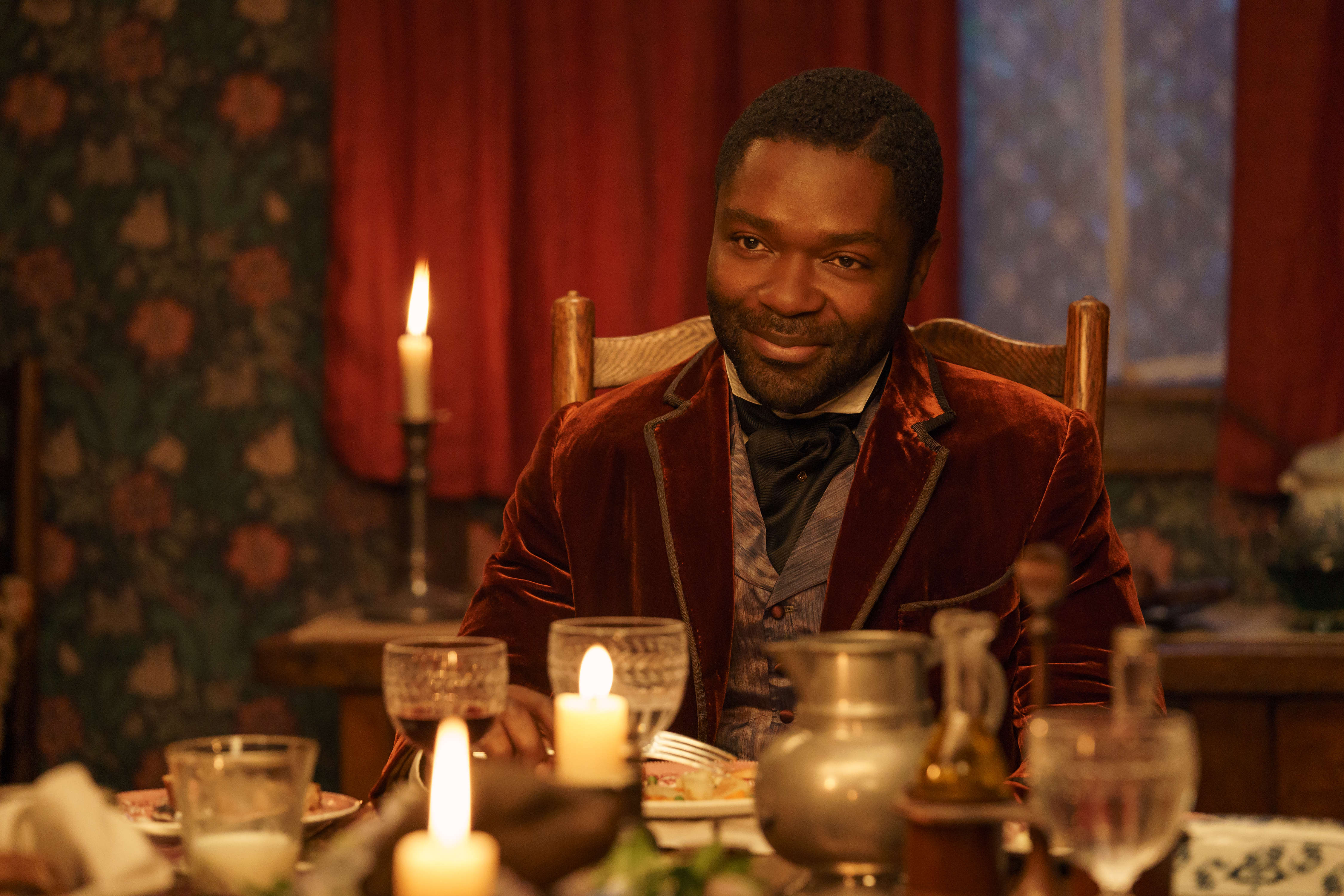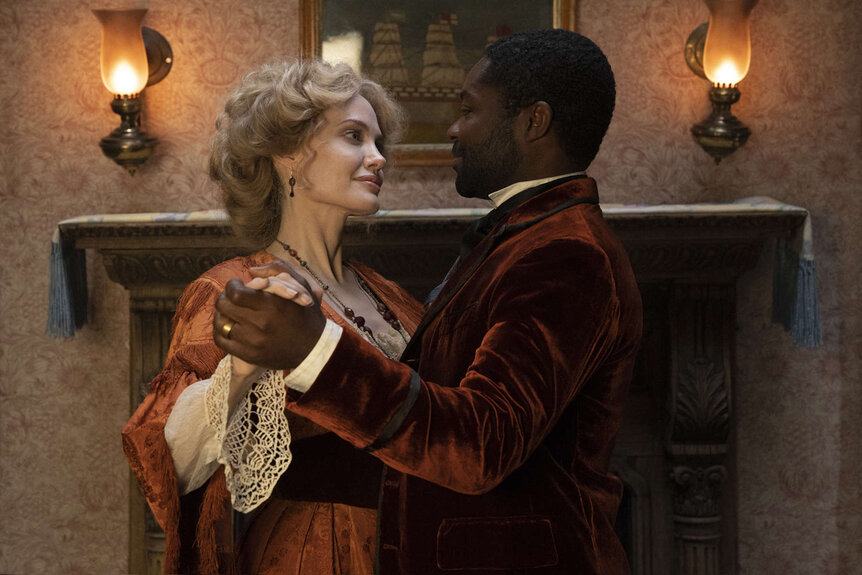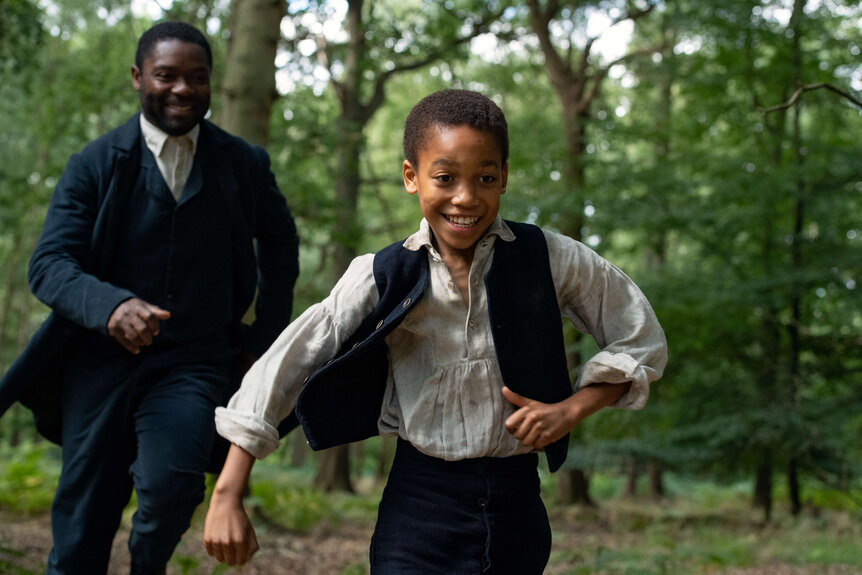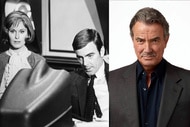Create a free profile to get unlimited access to exclusive videos, sweepstakes, and more!
Come Away tackles 'politely framed racism' by racebending Peter Pan and Alice in Wonderland as Black children

It turns out that David Oyelowo, who plays the father of both Alice in Wonderland and Peter Pan in the reimagined origin story Come Away, has a special place in his own heart for kid-centric fantasy. Born in the U.K., Oyelowo moved to Nigeria at age 6, where his exposure to film and television was limited. When he moved back to the U.K. at age 13, he made up for being starved by gorging; he became a “full-on TV addict and movie buff,” wearing out VHS tape after VHS tape of E.T. the Extra-Terrestrial, Gremlins, The Goonies, and The NeverEnding Story.
“It almost felt like those kids had made those movies, from their perspective,” he told SYFY WIRE ahead of Come Away's premiere on Nov. 13. At the same time, he was confused. Why did he not see himself reflected in any of these films? Where were the children of color? “It almost felt intentional that they were being excluded,” he says. “It felt premeditated.”
Come Away corrects this whitewashing with its predominantly Black cast — a rarity in fantasy films — but that also made it suffer the same pre-release fate as other films with race or gender swaps (such as Star Wars: The Force Awakens or the 2016 Ghostbusters reboot). Oyelowo chatted with SYFY WIRE about the racist online campaign against Come Away, how the film is actually subtle in regards to how it approaches race, and why his upcoming projects are especially relevant now.
Director Brenda Chapman said you were surprised when you got the script for Come Away. You didn’t understand why it was sent to you, since it wasn’t explicit what the races would be for the characters...
Yeah, because normally for me to get a film like this made, I would have to be the one pushing to get it made. It just has not been my experience that someone who doesn’t look like me is the instigator of that, and it was a great indicator that well, maybe things are changing.
What conversations did you have about how to treat, however tangentially, race and racism in the story?
Let’s not sugarcoat that Alice and Peter being Black in this film is a very fresh and different take. Not everyone’s going to like it, but it does open up the story in ways that we haven’t seen before.
One of the wonderful things about the script was how it looked at class in British society. Living in the U.K. for well over 20 years of my life, I have found that in many ways, class has been an excuse for racism. You know, the idea that it has less to do with the color of your skin and more to do with the hierarchical way that society is set up. What is often in denial is that by virtue of the color of your skin, you are instantaneously of a lower class. But like I say, class is often used as the excuse, when it’s about race: “Forgive us for being so British, having our class system.”
So in the film, we see this Black man, married to a white woman [played by Angelina Jolie], and their kids, and they’re deemed as a lower class, but of course, it’s tied to race. Brenda was wondering if that was something we needed to accentuate. My opinion was no because, at the end of the day, this story isn’t about race. We shouldn’t impose that upon the story. But because there’s a class element already in there, we can, in a very subtle way, still address race, without having to hit people over the head with it. And because the story is told from the children’s point of view, that’s not a preoccupation of theirs, right?
Anna Chancellor, who plays Angelina Jolie’s sister, Aunt Eleanor, is the one most preoccupied by class.
There was a temptation to make some of her prejudice against my character more aggressive. She’s the one expressing that I am from a lower class. And you know, that’s often how racism is expressed. In America, it might be more that someone is using the N-word, denying you voting rights, or denying you a job, whereas, in the U.K., it’s saying you’re of a lower class: “You know, you shouldn’t behave that way. Your decorum isn’t as good as it should be.” It’s all a bit of politely framed racism. It’s more subtle than it is in American culture.
Online is a whole other arena. You brought it to IMDb’s attention that the user-generated ratings had been weaponized against the film before it had been released on video-on-demand or in theaters, following the release of the trailer.
Rotten Tomatoes, you don’t see the audience score until the film is actually out. But IMDb, you can start rating when you clearly haven’t seen the film. This happened to me before, when I did the film A United Kingdom. When our trailer came out, the ratings just went down like a stone. I think it was because it was an interracial love story, with a white woman and a Black prince. He’s not browbeaten. He’s not broken. He’s someone worthy of aspiring to. Racism has a real problem with seeing Black and Brown people in a state of accomplishment. It got so bad with A United Kingdom that Fox Searchlight had to take it off their Facebook page because about 75 percent of the comments were racist.
So when I saw a similar thing happening with Come Away, I instantaneously had a sense of what that was about. If you looked at a few of the comments, they took umbrage with the idea of a Black Alice and a Black Peter. You can’t legislate how people are going to feel about that, but it’s unfair to drive down the score of a film because of your racism. Judge the film on its own merits.
John Boyega eloquently discussed the backlash he faced in Star Wars, and how Disney is part of the curation of culture. It’s not a question of attacking those people or trying to reform them, but if you see that one of your actors or projects is being targeted specifically by racists, there is something to be said for taking away the megaphone that they have to negatively influence the project. I’m sure those trolls are going to re-emerge now that our film is coming out this weekend, and they probably have taken huge umbrage with the fact that IMDb took down the ratings.
But you know, a lot of the time, it’s not even real people — it’s bot accounts. If tech companies can identify the bots that are doing that, they try and remove them. And if there are comments that are deeply offensive, those should be removed. If it’s actual critics or the audience saying that for whatever reason, the film isn’t to their liking, that’s fine, but when it’s driven by race, we need to find a way to remove that unfair appraisal, because that affects whether people choose to see the film, if all they’re seeing is a low rating driven by racism, homophobia, or sexism.
You have a couple of prescient projects that you shot before the pandemic, but now seem more relevant than before, The Midnight Sky and Chaos Walking. And now you’re shooting one that addresses pandemics through the lens of solitary confinement, called Solitary?
We’ve seen dystopian end-of-the-world-type movies before, but The Midnight Sky and Chaos Walking are going to feel like they were made after the pandemic. The Midnight Sky is a story about how we’ve been very irresponsible with our planet, we’re running out of oxygen, and as a result, a crew led by me has been sent out into space to try and find a planet where we can exist, because ours is essentially dying. It was shot before the pandemic, but having seen the film, it’s incredible how resonant it is, because the film really deals with the things we take for granted, whether it be the planet itself, our families, or the connections between us as human beings. I think at a time where we’ve all had to do these lockdowns and be separated from our families, and especially the tragedy of being separated from folks who may have fallen ill and not being able to see them because of the virus, suddenly the film has resonances that we couldn’t have foreseen.
Similarly, Chaos Walking is actually about finding a planet where we could exist, because we essentially ended our own planet, but on this planet, it has this weird quirk whereby women are able to hear the thoughts of men, which drives men crazy. It’s really about gender politics — how we treat each other, and how we misunderstand each other.
I actually just finished shooting Solitary in Vancouver. I play a guy who has been in solitary confinement for seven years, in a situation where I’ve been alone for 23 hours of the day, with lights on and people screaming all around you. It’s debilitating, and it definitely engenders mental illness. And he comes out of solitary with this shoddy mental state and finds it difficult to discern what is real and what is imagined. He’s endured isolation and is coming out into a society that is self-isolating against the virus. I think we’re going to see a lot of stories going forward that will have resonances that maybe we as storytellers didn’t originally realize. We’re going to have some interesting stories told as a result.
















